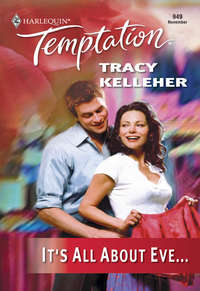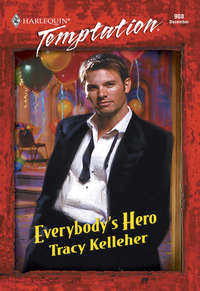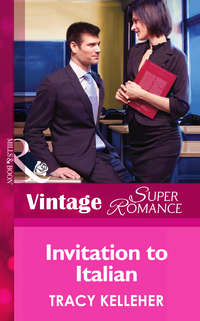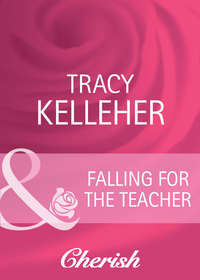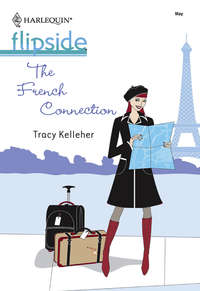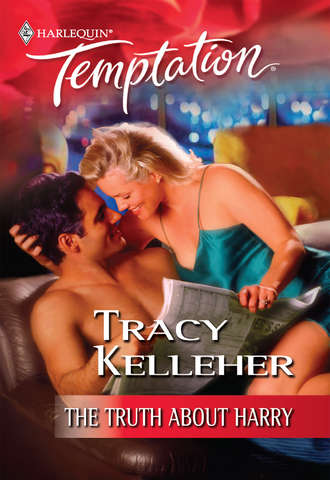
Полная версия
The Truth About Harry

Speaking of bodies, Lauren was evidently enjoying a very nice eyeful of Sebastian’s
This time, he realized, she wasn’t searching for something neutral to focus on when she spoke to him. “You know, there’s something I should do before I forget.” She scooted next to him and placed a hand on his thigh.
“You need to check that police source for your story?” He observed her hand.
“Yeah, I need to do that, but that wasn’t what I had in mind at the moment.” She made a slow circle on his skin with her index finger.
“You need to call room service for something to eat? I realize we missed dinner.” Sometimes his gallantry astounded him.
“No, I’m fine.”
Sebastian tweaked a smile. “You’re absolutely right, darlin’—in fact, you’re a lot more than fine,” he whispered as Lauren undid her terry-cloth robe and let it slip from her shoulders.
Dear Reader,
The life of a reporter is often filled with uninspiring daily assignments. But what if, under unusual circumstances, a reporter actually got to exercise a self-indulgent flight of fancy regarding one of the least-coveted of duties—writing an obituary?
What if, indeed?
Lauren Jeffries finds out the repercussions when an obituary that she has liberally embellished inadvertently gets published. Not only is her journalistic integrity compromised, but she also finds herself enmeshed in an international art theft. And even more dangerously, she tangles with Sebastian Alberti, the investigator on the case.
Never has a case of “misapplied” identity led to so many twists and turns and sexy interludes. Yes, those sexy interludes.
And here I said a reporter’s life was dull!
All the best,
Tracy Kelleher
Books by Tracy Kelleher
HARLEQUIN TEMPTATION
908—EVERYBODY’S HERO
949—IT’S ALL ABOUT EVE…
The Truth About Harry
Tracy Kelleher

www.millsandboon.co.uk
To my gracious editor, Kathryn Lye. You made it happen.
Contents
Prologue
Chapter 1
Chapter 2
Chapter 3
Chapter 4
Chapter 5
Chapter 6
Chapter 7
Chapter 8
Chapter 9
Chapter 10
Chapter 11
Chapter 12
Chapter 13
Epilogue
Prologue
Harry Nord, 83, Manufacturer And Philanthropist, Dies
Harry Nord, a decorated World War II pilot, self-made millionaire and generous local philanthropist, died in his sleep yesterday at the Philadelphia Veteran’s Administration Hospital. He was 83 years old and had been ill for some time.
A true Horatio Alger story, Mr. Nord, born in Camden, New Jersey, came from a humble background, having been orphaned at the age of twelve when his parents died in the infamous B&O train crash of December 1934. An investigation of the incident revealed that the conductor had reported to work inebriated after celebrating at the company Christmas party. Charges were leveled, though later dropped, against the railroad’s management. Mr. Nord liked to tell employees of Nord Notions and Trimmings Company, of which he was founder and president, that it was his constant lack of proper winter clothing growing up in greater Philadelphia that led him to the garment industry.
Before making his mark in the industry, Mr. Nord had a distinguished military career in World War II, rising to the rank of captain. A pilot, his plane was shot down on a mission over northern Italy. Although dazed and injured, Mr. Nord dragged his wounded navigator from the burning plane. Local villagers of San—
LAUREN JEFFRIES tapped on the space bar and rubbed her lips. “San what?” she asked out loud to no one in particular. The rest of the Metro Desk at the Philadelphia Sentinel, eastern Pennsylvania’s second-largest newspaper—a claim that never failed to generate a snide “Hah!” from Lauren—had long since filed their stories for the night’s deadline and were drinking cheap beer and complaining about their piddly salaries at Gino’s, the bar around the corner from the office.
She glanced at her notes, knowing already that they wouldn’t offer any assistance. A conspiratorial smile formed on her lips, and she hunched over her terminal and tapped furiously.
Local villagers from San Margherita discovered the two men and hid the crew until they were well enough to travel. Then, with the aid of a shepherd, they hiked to safety across the Alps to Switzerland. Mr. Nord was later awarded a Bronze Star for heroism.
Upon conclusion of the war, Mr. Nord returned to Philadelphia, where he secured various entry-level jobs in the garment industry. While working as a buttonholer at a shirt factory, he realized that the finishing process would proceed much more quickly if there were a single machine that could sew and slit the buttonholes at the same time. He developed an automatic buttonhole device, which he patented. The Nordomatic, as the device came to be known, revolutionized shirtmaking. Later inventions, including the zigzag zipper-foot, further established Mr. Nord as an innovative leader in the industry, and laid the groundwork for Nord Notions and Trimming Company, a manufacturing business whose headquarters were once located next to Thirtieth Street Station. In 1991, the Singer Corporation bought out Nord Notions; operations were subsequently moved to Mexico.
Mr. Nord was a generous benefactor, as well as an industrial leader. Locally, he established the “Winter Coat Drive” to aid the Salvation Army. Perhaps his most generous act of charity—
Lauren backspaced and deleted the last word.
—of largesse was the rebuilding of the tiny town of San Margherita. Grateful for the protection the villagers had offered despite the risk to their own safety, Mr. Nord donated funds to build a new school, retirement home and library, restore the community’s small but noteworthy Romanesque church and establish a scholarship program to send promising students to universities in Italy and abroad. A plaque in his honor, affixed to the north wall of the town hall, proclaims in Italian, “Here he came to earth in a blaze of fire, and with God’s help, raised San Margherita from the ashes.”
Lauren leaned back. The quote was outrageous, and she could just see Dan Jankowski, the copy editor on duty that night, chuckling to himself before he hit the delete button and sent her a terse e-mail: “Try to keep your flights of fancy to under three inches. This is Metro, not Page One.”
It was bad to fabricate the story, even an obit. Really bad. Lauren, who wore professional integrity on her sleeve the way a lot of professional athletes had endorsement patches, knew it more than most. But she couldn’t help it. And it wasn’t like this one was ever going to see the light of day. Call it a revenge piece. A catharsis. A way to vent her reporter’s spleen. She’d just found out that her managing editor, Ray Kirkel, the douche bag, had passed her over for the State House reporter job in favor of Huey Neumeyer. Huey! An editorial assistant who couldn’t even photocopy straight. Maybe the fact that he was Ray’s wife’s cousin had something to do with the appointment.
“Everything to do with it!” Lauren snorted. One did not grow up in South Philly without acquiring a certain sense of cynicism. It was like cheesesteaks, the local culinary specialty—it went with the territory.
After three years pounding the Metro beat, generating more than the usual school board and two-alarm fire stories—and garnering an award from the Pennsylvania Press Association for her piece on teenage runaways—what did she get? A fax tossed on her desk and an order from Ray: “Two inches by deadline. An ad was pulled from the obit page, and I need to fill the space.”
Lauren had looked down at the bare-bones release from the mortuary. Harry Nord, the real Harry Nord, wouldn’t guarantee more than half a column inch, and that was with a free plug for the funeral parlor.
“So, this is my reward for all my hard work and effort?” Lauren wailed silently after Ray had waddled off in the direction of the men’s room. “The man wouldn’t know a crack reporter, let alone a crack story, if he fell over one,” she muttered under her breath. And to prove her point, she’d taken Harry Nord’s death notice and embellished it beyond recognition, turning it into the human interest story of the year, knowing full well it wouldn’t run, but getting a genuine sense of satisfaction nonetheless.
Tomorrow, she’d do the real obit on the real Harry Nord, and it would appear in a late edition. Ray would never know. As far as she could tell, he hardly ever looked at the paper except to scan the six-column photos of buxom, bikini-clad babes.
Without a second thought, Lauren hit Send and forwarded the text to the Copy Desk. End of story.
Yeah, right.
1
“I AM SO SCREWED,” Lauren mumbled into the shoulder of her fuzzy sweater. She slowly rubbed her forehead as if willing her headache to escape via the horizontal tracks she was tunneling in her cranium.
“What’s that?” Phoebe Russell-Warren arched her swanlike neck and thrust her shoulders back to get a better view of the television news conference at the front of the office lobby. At six foot one with impeccable posture—the effects of years of field hockey, she had once assured Lauren—Phoebe cut an impressive figure. The major bits of gold hanging off her earlobes and dangling from her slender wrists added to the Amazonian effect. “You don’t recognize the man standing next to Ray, do you?” she asked, peering elegantly ahead. “I know all the local broadcasters, at least those worth knowing, and he doesn’t look familiar.”
Phoebe wasn’t exaggerating her people skills. As Lifestyle editor, she knew everyone on Society Hill and the Main Line with a trust fund and a Porsche Boxster.
Lauren went up on tiptoe and frowned. “I can’t see anything clearly except Baby Huey’s dandruff on his navy blue blazer.” Unlike Phoebe, Lauren barely grazed the five-foot-three mark, even wearing clogs. Clogs, a turtleneck sweater and khaki pants—ah, yes, the wardrobe of the penurious and fashion-challenged reporter.
Phoebe turned her attention away from the news conference and stared down at Lauren. “What was it you said? Baby Huey?”
“It’s my new name for Neumeyer, intrepid State House reporter and genuine turd,” Lauren said, gripping her take-out coffee cup a little harder than necessary.
“Ladies and gentlemen,” Ray Kirkel, their fearless leader, intoned by the bank of glass doors, “I’m very excited to welcome you all here today for this important announcement.”
There was a pause. Lauren figured Ray was beaming into the television cameras from the local affiliate of the network news.
“Not that we’re not used to excitement on a regular basis here at the Sentinel,” he started up again.
“I wish you could see the man at the front next to Ray. He is an absolute dish.” Phoebe nudged Lauren.
Only Phoebe could get away with phrases like “an absolute dish,” Lauren thought. Lauren breathed in slowly and reluctantly leaned toward her friend. “Forget Dishy Mystery Man for a moment.”
“Forget him? Are you crazy? He has that dangerous look of a young Sean Connery playing James Bond. Maybe he has a Scottish accent, too? Nothing like a Scottish accent in bed. Or in the shower. Or up against the wall.”
Lauren went back to rubbing her forehead. “Phoebe, listen, I have something important that I really need to tell you.” The need to bare her soul was an unfortunate attribute of Lauren’s, and one that at the age of twenty-seven she hoped she would have left behind—the same way she’d cleared up her teenage acne and shed the fifteen pounds of puppy fat that once surrounded her waist like a plastic float.
“We’re gathered here today because of the passing of a great man,” Ray bellowed.
Phoebe reluctantly shifted her gaze to Lauren. “You need to confess something? The woman who doesn’t sleep around, indulge in illegal substances and only drinks wine or beer—and then in moderation? You won’t even buy me cigarettes when I run out.”
Lauren rolled her eyes. “It’s about the obit,” she whispered.
“The obit?” Phoebe’s delivery wasn’t quite so sotto voce.
“Shh!” Baby Huey turned around. “You two are interrupting a unique moment here.” He looked at them sternly before shifting back to take in the action.
“If you only knew how unique,” Lauren moaned softly.
“As usual, the Sentinel came through,” Ray continued before raising his arm magisterially and pointing to a screen that had been set up to his right. Instantly, there appeared a giant image—an obituary. Lauren’s obit. Well, not her actual obit, but the obit she’d written.
“It just shows that with the right editorial guidance, even a junior member of the staff can make an impact,” Ray announced.
Lauren groaned. “Maybe he won’t mention my name.”
“Of course he won’t mention your name. Ray is a total asshole,” Phoebe said sympathetically.
“Once more, I’m pleased to say our paper, despite our limited resources in comparison to television, scooped the other media.” Ray modestly held up his hand. “No slight to you folks,” he joked to the TV crews. Yeah, right.
“Maybe now I’ll find out who Mr. Tall, Dark And Handsome is.” Phoebe didn’t bother to be coy as she started to move forward through the crowd.
Lauren reached out and stopped her. “Phoebe, there’s something you need to know about the obit.” She gulped. “The guy’s story—I made the whole thing up.” She’d like to say she felt better for confessing, but the pit in her stomach was only getting larger.
“Wha-at?” Phoebe squawked. She swiveled around and grabbed Lauren by both forearms.
“Those Pilates classes have really improved your grip,” Lauren observed.
“Actually, it’s high-impact yoga.” Phoebe pulled her closer and bent her head down. “You mean you killed off somebody who wasn’t dead.”
Lauren shook her head. “No, trust me, Harry Nord is good and dead.” She cast a worried glance around to see if anyone was watching.
Who was she kidding? With two women locked in an embrace, of course somebody was watching. “Will you keep it down? All the guys in production will think we’re staging a little snuggle here just for their benefit.” Lauren grabbed Phoebe by the shoulders, hustled her down the hallway and pushed her through the first door they came to.
Phoebe looked around. “If you’re worried what people are going to think, squirreling me away into the janitor’s closet is not going to help.” Unfazed, she overturned a large mop bucket and lowered herself regally, crossing one leg over the other so that her taupe patent leather Chanel pump swung gracefully next to her slender calf.
Lauren scraped her loose bangs from her forehead. “You see, it’s like this. Ray, being the asshole he is—as you so rightly pointed out—not only appointed Baby Huey to the State House reporter’s job over me, but he didn’t even have the nerve to tell me to my face. I heard it from Donna.”
“You mean, Donna of the ill-fitting double-Ds? She won’t ever give me new erasers, even when I ask politely.” In addition to being president of the Engelbert Humperdinck Fan Club, Donna Drinkwater was head of the supply closet and ruled over it with the arbitrary élan of a born martinet.
“You’re kidding? I can always get erasers,” Lauren said, then waved her hand in the air. “The point is, Ray, the schmuck, when he finally did come face-to-face, merely assigned me an obit without so much as a by-your-leave. So I got mad, really mad. And really more out of spite than anything, I—”
Phoebe rose. “You don’t need to go on. You invented a great news story—about Harry Nord—didn’t you?”
Lauren nodded.
“You know, I particularly liked the bit about the villagers harboring Harry and his wounded navigator after he dragged him from their burning plane.”
“Thanks a lot. Anyhow, never in my wildest dreams did I expect the thing to appear.”
“Of course not.” Phoebe laughed, then did a double take. “Are you telling me you submitted it to the Copy Desk and counted on them to realize it was a joke?”
“To my utter amazement, all Dan Jankowski did was change a semicolon to a period. Did you ever notice the way Dan hates semicolons?”
Phoebe eyed her gravely.
Lauren held up her hand. “I know, I know. It was a stupid thing to do. But how was I to know that the story would run, that it would get picked up by the wire services and somehow find its way to television?” She breathed in deeply. “Do you think I should throw myself on Ray’s mercy and hope that in his heart of hearts he’ll find a way to forgive me?”
“Lauren, get real. Ray doesn’t have a heart.” Phoebe paused. “Have you ever thought about becoming a salesperson in the shoe department at Wanamaker’s?” As an old-time Philadelphian, Phoebe still referred to the department store in the grand building on Market by its original name—steadfastly refusing to let Lord & Taylor pass her lips. “I could really use the discount.”
“Phoebe! This is my career we’re talking about.”
Actually, it was more like her life’s dream—not the part about working for the Sentinel necessarily, but being a reporter. Ever since Lauren could remember, she had been hooked on journalism. She salivated over the way the headlines screamed the news. Marveled at the quotes that the writers could get important people to say. Was awestruck by the emotions the photos could elicit. Even the smell of the newsprint and the way the ink came off on her fingers inspired Lauren with a sensory glee that she couldn’t explain—certainly not to her mother, who naturally thought Lauren should join the family dry cleaning business and certainly not break off her engagement to a handsome local boy who had a guaranteed income of seventy thousand as an accounts manager at Jefferson Memorial Hospital.
“Just think, he could probably use his influence to get you a private room at a lower rate when you have your first baby,” her mother liked to say. This from the woman who saved used rubber bands on the kitchen doorknob.
Well, despite her mother’s protests, Lauren had pulled the plug on the whole rosy picture—the baby, the private hospital room and the wedding.
The decision had been made easy when she found her fiancé, the no-good creep Johnny Budworth, doing the deed with Agnes Iolites, their greatly overpriced wedding planner. But that wasn’t the only thing that had tipped the scales. You see, Lauren had already wised up to the fact that Johnny never understood what turned her on—and she wasn’t just talking about sex, though sex was part of it. Over the course of their relationship, Lauren had seriously wondered if halftime during a televised Eagles game really was the most romantic moment to indulge in intercourse.
No, it was more than about sex. And if she had to put her finger on the one thing that summed up their different outlooks on life it would be that Johnny never read her articles, never read the Sentinel—never read any newspaper for that matter. “I listen to news radio, babe. What more do I need to know?” he’d say, and then add, “You know, maybe you should go wash your hands. The ink from the paper leaves smudges on the white leather couch my Aunt Dotty gave me.”
Yeah, it was more than a career for Lauren—it was a dream of doing something special, making a difference, regardless of leaving smudges. The Sentinel might not be the end-all-be-all, but it was on the road to better things.
Phoebe placed a hand on Lauren’s shoulder. “Listen, if I were you, I’d just stay quiet. Who knows? There’s a good chance that this whole thing will blow over and no one will ever know. Besides, it’s not like the story ran with a byline, and Ray’s not about to voluntarily give you any credit.”
Lauren was tempted to tell Phoebe she’d split an infinitive, but decided now was probably not a good time. “Maybe you’re right. Maybe it’ll all blow over like yesterday’s news.” And maybe she’d grow another four inches.
Lauren squared her shoulders. “So, shall we go back and see the rest of the dog and pony show?”
Phoebe nodded, and they slipped out of the closet—so to speak.
“I am especially pleased that the Sentinel is able to have yet another scoop,” Lauren heard Ray announce when they got back to the large lobby. “And with that in mind, it is my great pleasure that I am able to introduce to you today—”
Lauren went up on her tiptoes and strained to see the front of the room.
“Sebastian Alberti.”
“Who?” Lauren looked to Phoebe who had abandoned her customary sangfroid and was violently fanning herself.
“The grandson of Philadelphia’s own hero, Harry Nord,” Ray declared.
Just as the Red Sea parted for Moses, so too the bodies in the lobby miraculously opened up, and for the first time Lauren got a good look. At Ray. No, forget Ray. At the man standing next to Ray.
She was stunned. No wonder Phoebe had gone gaga. Men like that simply didn’t live in Philly. They didn’t even visit Philly. They certainly didn’t walk through the front door of the Sentinel’s lobby.
And nothing against Phoebe’s judgment, but Sean Connery, even younger and with hair, couldn’t hold a candle to the man in front. Tall, with broad shoulders and a trim build, Sebastian Alberti wore his charcoal-gray suit as if it were made for him. Lauren peered more closely—it was probably made for him. Still, even though he looked perfectly at home in Savile Row tailoring, he was definitely no wimpy clotheshorse. Not when his confident posture managed to simultaneously radiate ease and tension.
And that face. Lauren shook her head. Face was too prissy a word. His collection of chiseled features—the prominent cheekbones and square jaw—his raven-black hair, deep-set eyes and slashing eyebrows. No question about it, the whole package spelled B-A-D. Hot bad. Hot, HOT bad.
With some coaxing, Sebastian Alberti stepped to the microphone and smiled. At which point his features altered perceptibly, and a collective sigh could be heard from among the female members of the audience and even some of the guys, though not the boys from production. Right in front of their eyes, Mr. Bad Boy was transformed into Mr. Bad Boy With A Heart.
Lauren would have succumbed then and there along with all the others duly affected in the room. Would have—except for one glaring problem. Harry Nord, real or otherwise, didn’t have a grandson.
Sebastian Alberti—or the heartthrob claiming to be Sebastian Alberti—leaned into the microphone and ducked his head down, just like someone not used to talking in front of an audience. Lauren could feel the tension as all the mothering types held themselves back from going up and adjusting the angle of the mike just so.
“I’m honored to be here today. Thank you, Ray.” He nodded politely, and Ray lifted a hand and pretended to be humble. “I never thought anyone would write about my grandfather that way.” Unlike Double-O-Seven and his Scottish burr, Harry’s supposed grandson spoke in a subtle southern drawl. But it definitely contained a license to kill. Hearts, that is.
“My late mother, a product of war-torn Italy—” a chorus of “oohs” chimed in here “—would have been so pleased that her father was finally recognized, given his generosity to her small village. Babbo, as I always called him, never talked about his past. ‘True giving,’ he always said, ‘should be anonymous.’”
There was a chorus of “amens.”
“It’s like watching a revivalist minister in an Armani suit,” Lauren said out of the side of her mouth.


